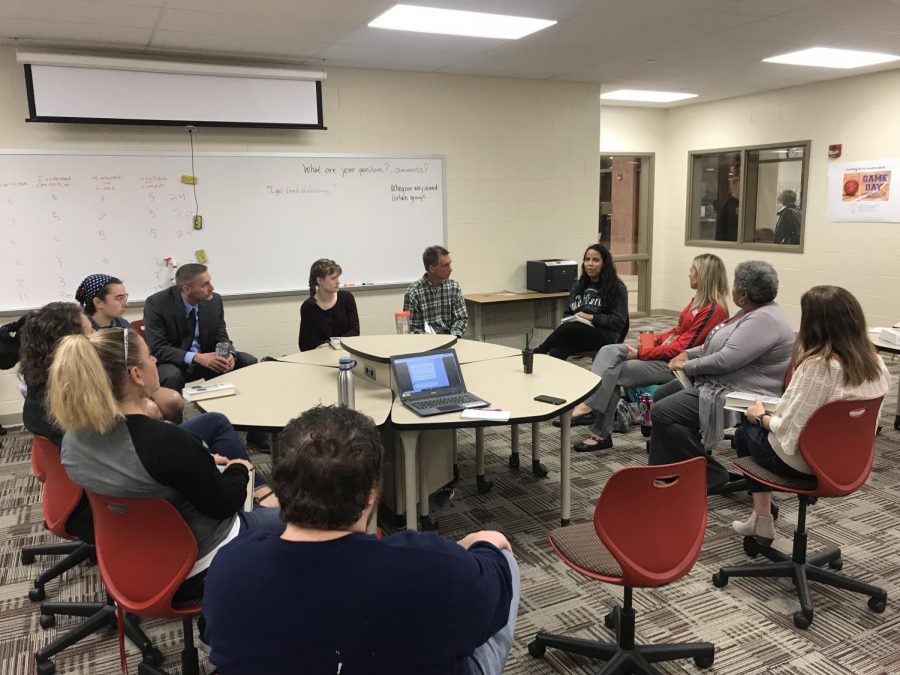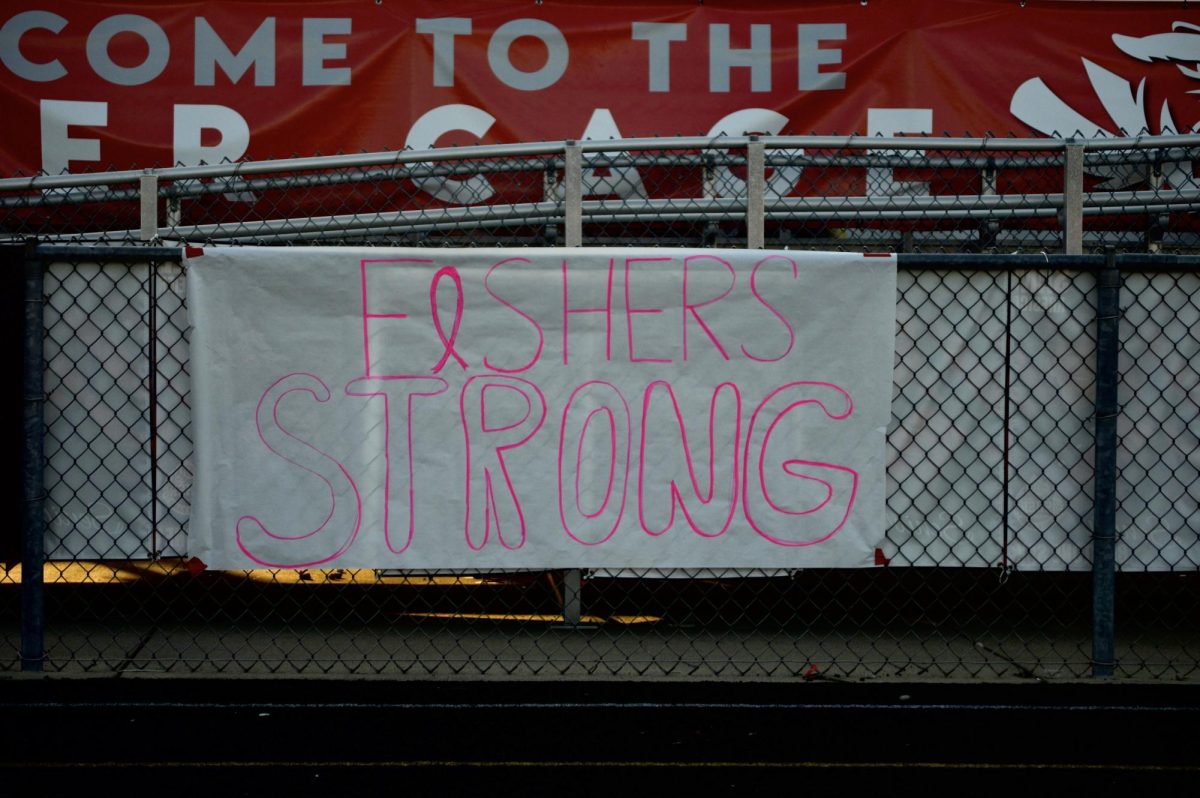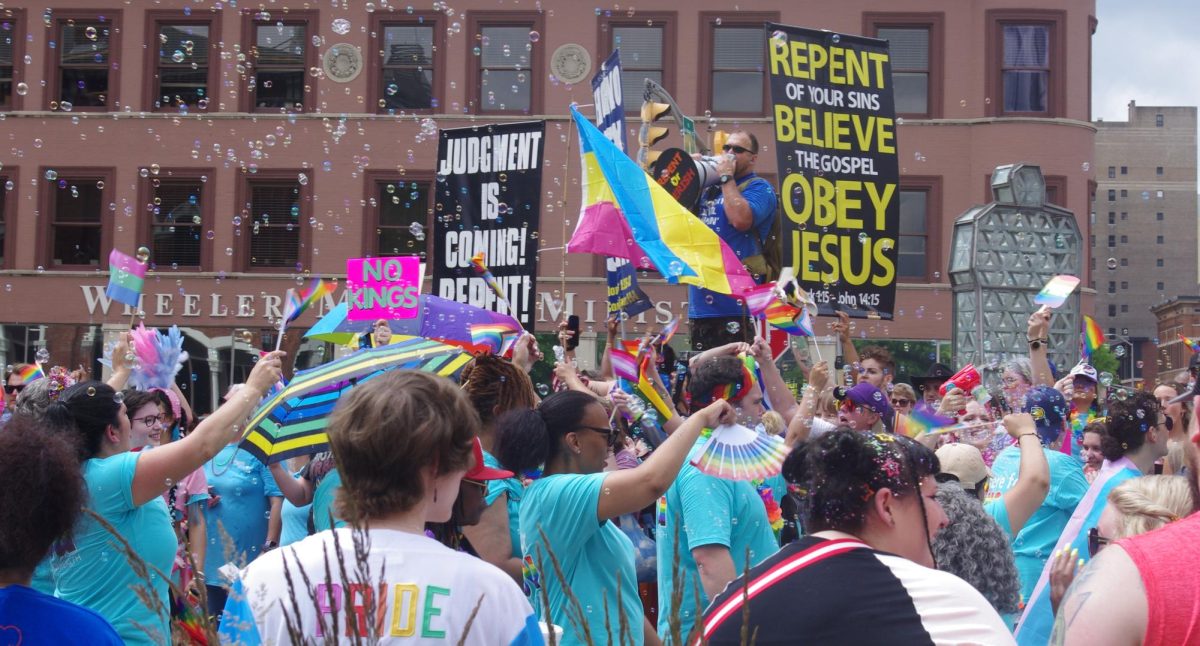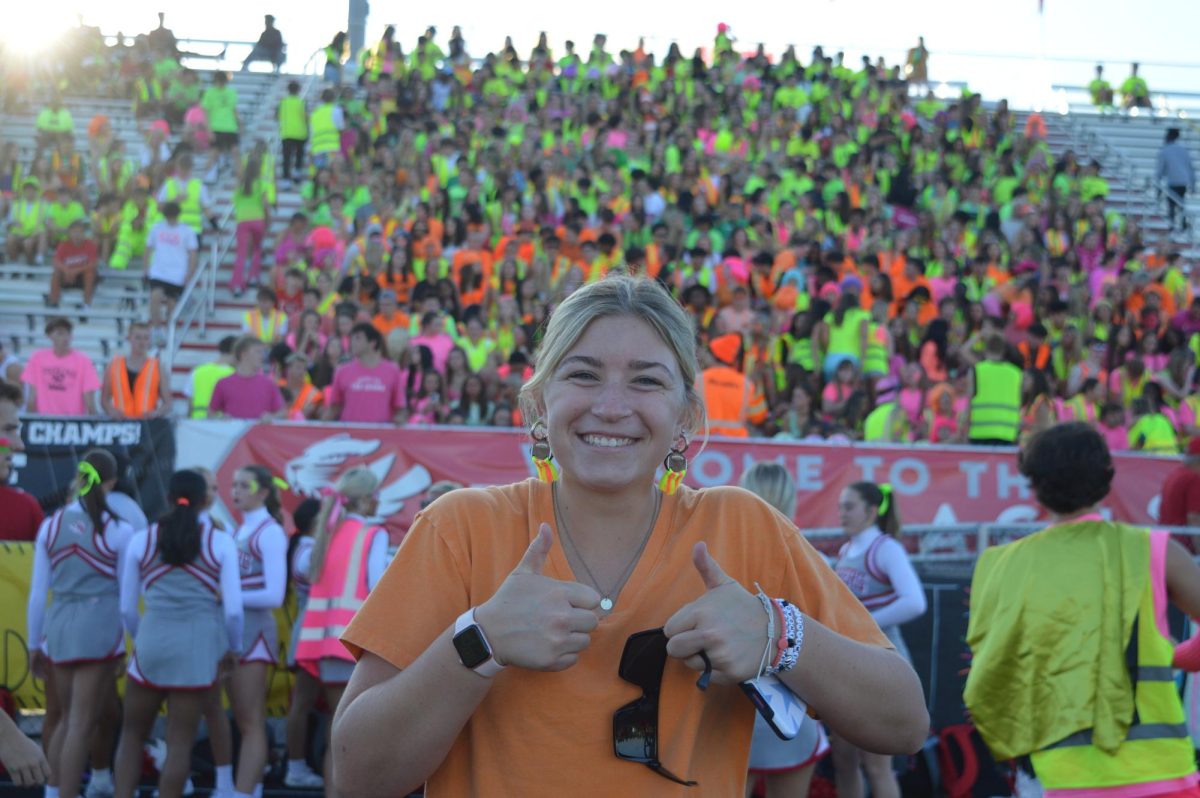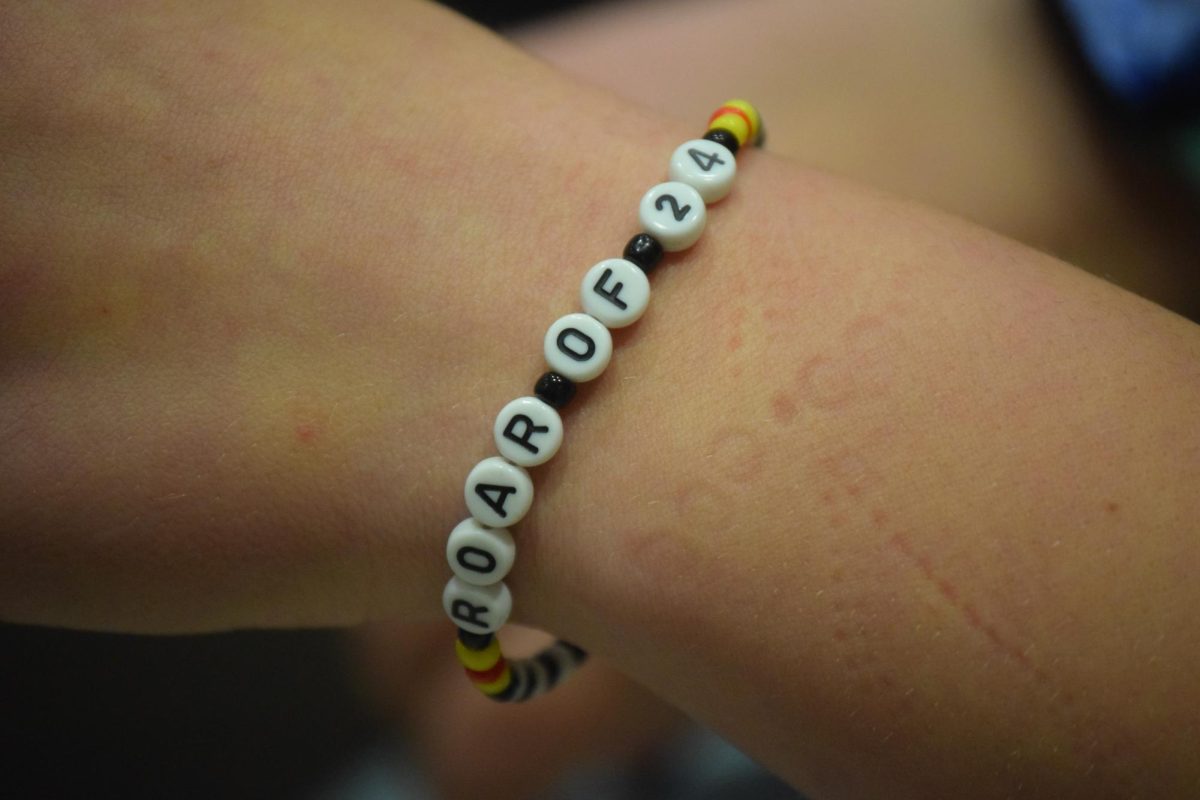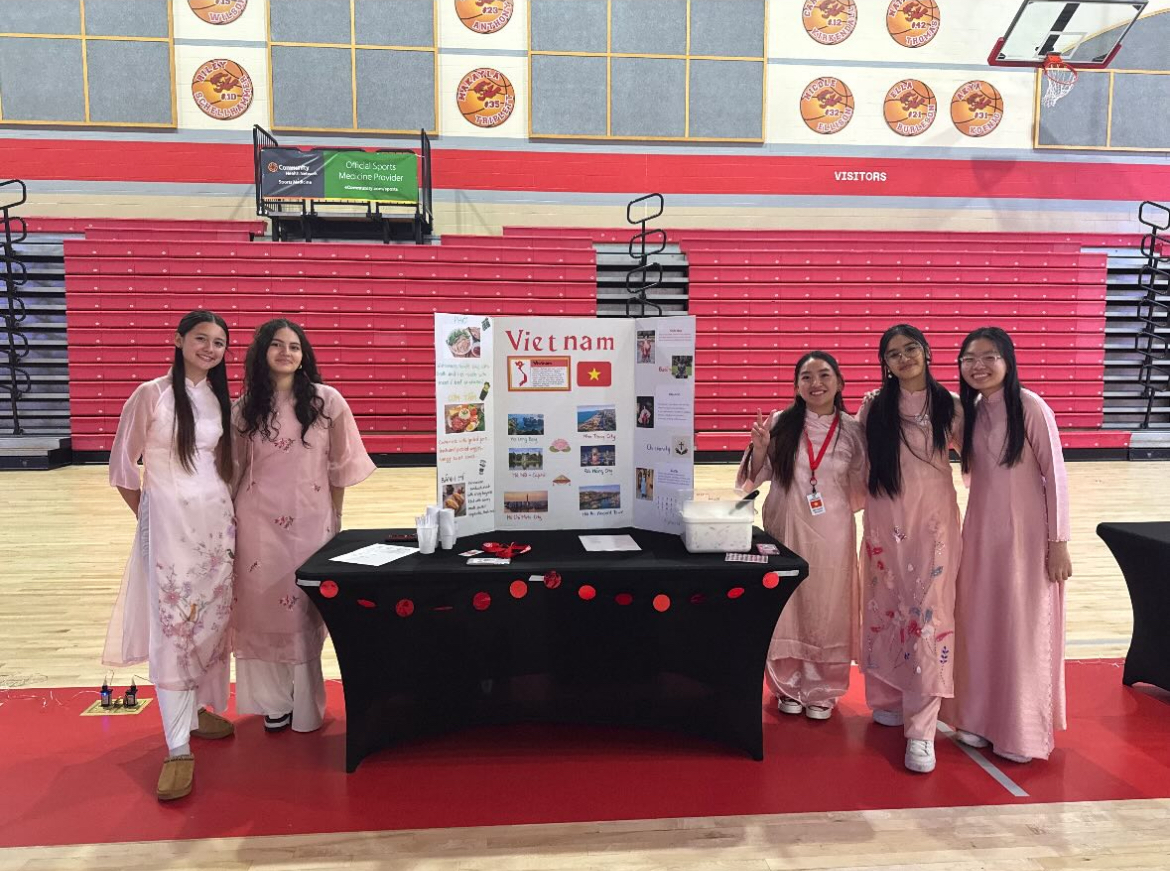Book club addresses racism, police brutality
Gathered around a large table on Thursday, September 27 in H136, the members of the book club including a mixture of staff and students, discuss their interpretations of “The Hate U Give,” and let discussions of race take center stage.
September 28, 2018
“The Hate U Give” written by Angie Thomas, is a book centered around police brutality and racism and its consequences in America today. A book club for “The Hate U Give”, sponsored by science teacher Lance Kuhn, meets every other Thursday in H136 to discuss these topics and how they apply to students.
“I read this book with my family at home, and a couple of my son’s good friends are African American and they all just graduated high school,” Kuhn said. “We all had a conversation surrounding racism and its effect on students, and we felt like it needed to be extended to the rest of the school.”
The book follows an African American woman named Starr who finds herself in the midst of social and legal turmoil in her community when she witnesses her friend Khalil get killed by a police officer during a traffic stop. The book deals with many different social issues commonly facing African Americans, such as police brutality, poverty and the many ways people cope with it, and the racial pressures present in the school day.
Despite focusing primarily on African American social issues, the book appeals to a broader audience, as it focuses on these issues from all sides of the table. It details how Starr’s white boyfriend reacts to the controversy, as well as how police officers who are both white and black react to the death of Khalil at the hands of one of their own.
“I want to appeal to everybody with this club because what I really want to see is for this conversation surrounding prejudice to happen,” Dr. Kuhn said. “A big part of the issue in this country is that the conversation doesn’t happen. People stand on one side or the other and lock arms and yell at each other, but they don’t have the honest conversation about this issue and they aren’t willing to talk about the actual problems at hand.”
School staff is concerned that black students within the community are faced with these same problems.
“The conversation Starr’s parents had to have with her about the police and how they may be treated by them [makes me wonder] how many of our students or teachers have had to have that same conversation,” principal Jason Urban said.
Throughout the book, Starr consistently faces pressure from other students, including her white boyfriend with whom she feels she cannot comfortably speak to about her turbulent upbringing. This subliminal pressure to present oneself a certain way is a frequent curiosity of FHS staff.
“I definitely have my own groups where I act a certain way depending on who I’m with, so I’m curious if, at our school, how free are students to be who they really are,” librarian Renee Isom said. “When do they feel like they have to act differently based on who they’re with?”
This book club serves to open up a dialogue about these issues. For those who would like to be a part of this dialogue for change, the next book club takes place on Oct. 11.


